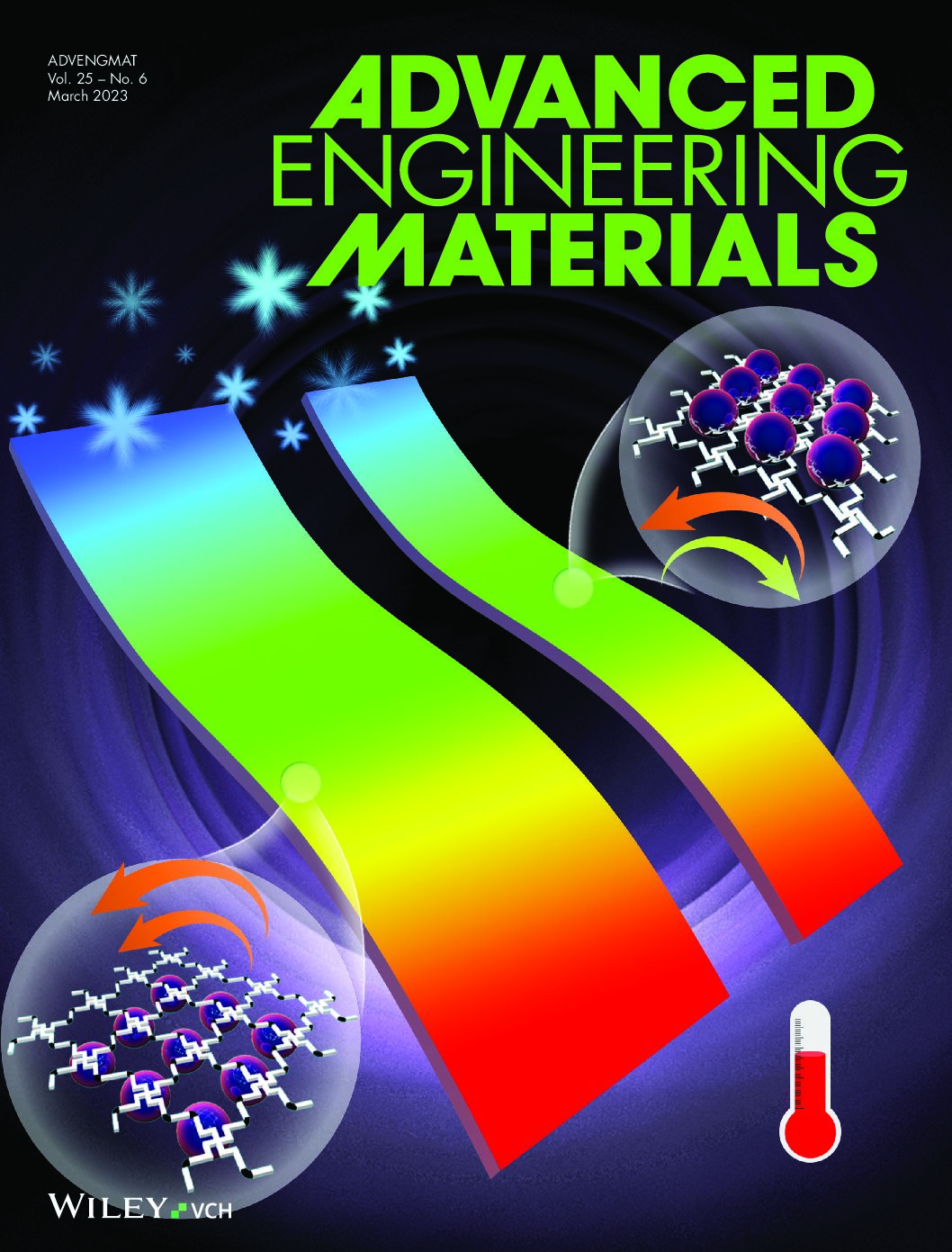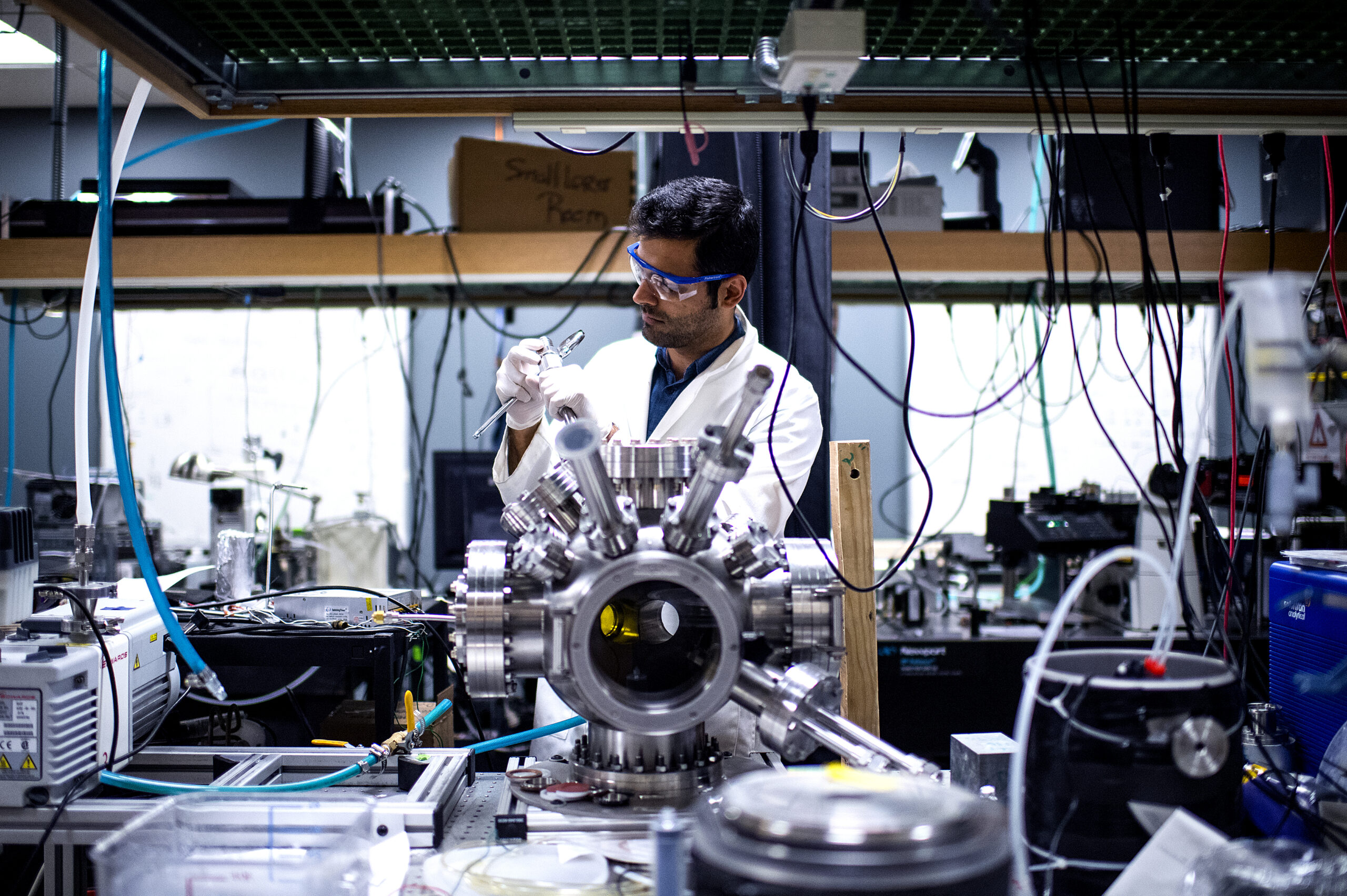Title
Topic
-
Melodia inducted into collaborative Air Force Honorary Commander and Director Program
“Electrical and computer engineering William Lincoln Smith Professor Tommaso Melodia is one of ten local directors to be inducted into the Hanscom Air Force Base Honorary Commander and Director program.” The program “pairs military-connected commanders and directors with civic counterparts to foster relationships, collaborate and share ideas, and build rapport between key community members and senior leaders at Hanscom” Air Force Base, the base wrote in a press release.
-
Magowan publishes short story ‘Litter Box’
Kim Magowan, adjunct professor of English and Aurelia H. Reinhardt professor of American literature at Mills College at Northeastern University, has published the short story “Litter Box.” “Litter Box” tells the story of one woman’s spur-of-the-moment trip to London and her confusion around how life has brought her there.
-
China Insights Series: How Chinese companies are reinventing management control
Professor George Yip gave a presentation in the China Insight Series. “China’s companies have long been acclaimed for their manufacturing prowess and, more recently, for their pragmatic approach to innovation. It’s time to recognize how they are also reinventing management control for the digital era through an approach we call ‘digitally-enhanced directed autonomy,’ which gives employees autonomy while monitoring more precisely how they exercise it.”
-
‘Highly-Sensitive Label-Free Deep Profiling of N-glycans Released From Biomedically-Relevant Samples’
“Alterations of protein glycosylation can serve as sensitive and specific disease biomarkers. Labeling procedures for improved separation and detectability of oligosaccharides have several drawbacks, including incomplete derivatization, side-products, noticeable desialylation/defucosylation, sample loss, and interference with downstream analyses. Here, we develop a label-free workflow based on high sensitivity capillary zone electrophoresis-mass spectrometry (CZE-MS) for profiling of native underivatized released N-glycans.” Read the paper and see the full list of authors at Nature Communications.
-
Muñoz wins NSF CAREER Grant for ‘floodplain sedimentation’ research
“Samuel Muñoz, assistant professor, marine and environmental sciences and civil and environmental engineering, has been awarded a $718,000 National Science Foundation CAREER grant to study floodplain sedimentation through observation and simulation to improve flood hazard assessments.”
-
Patent award for device that classifies wireless signals
“Electrical and computer engineering research assistant professor Salvatore D’Oro, William Lincoln Smith Professor Tommaso Melodia, and assistant professor Francesco Restuccia were awarded a patent for ‘Device and Method for Reliable Classification of Wireless Signals.'”
-
Patent for ‘Real-Time Cognitive Wireless Networking’
“Electrical and computer engineering assistant professor Francesco Restuccia and William L. Smith Professor Tommaso Melodia were awarded a patent for ‘Real-Time Cognitive Wireless Networking Through Deep Learning in Transmission and Reception Communication Paths.'”
-
Using deep neural networks to model complex wave patterns
Researchers have “Developed data-driven models to estimate wave parameters and spectra near the” Chesapeake Bay Bridge Tunnel. “To estimate wave parameters and energy spectra near the CBBT, novel composite data-driven models were developed using the wind, water level, and offshore wave data” were used in “deep neural networks” to model a complex wave environment with relatively low computational resources. Read “Data-driven modeling of Bay-Ocean wave spectra at bridge-tunnel crossing of Chesapeake Bay, USA” and see the full list of authors in Applied Ocean Research.
-
‘Nonspherical Ultrasound Microbubbles’
“Bioengineering assistant professor Tao Sun recently published his postdoctoral research from the John A. Paulson School of Engineering and Applied Sciences and Brigham and Women’s Hospital on ‘Nonspherical Ultrasound Microbubbles’ in PNAS.”
-
‘Mechanical Properties’ paper featured on cover of Advanced Engineering Materials

Associate professor of mechanical and industrial engineering Yaning Li and co-author Siyao Liu have published a new paper titled “Mechanical Properties of Cochiral and Contrachiral Mechanical Metamaterials Under Different Temperatures,” which was featured on the cover of Advanced Engineering Materials, March 2023. From the abstract: “Cochiral and contrachiral mechanical metamaterials are designed by introducing chiral cells with different handedness to the center of the basic chiral cell. Both single-material designs and multimaterial designs are explored. The designs are fabricated via a multimaterial 3D printer, and uniaxial tension experiments are performed in a thermal chamber at two different temperatures.”
-
‘Erasing Concepts From Diffusion Models’
“Motivated by recent advancements in text-to-image diffusion, we study erasure of specific concepts from the model’s weights. While Stable Diffusion has shown promise in producing explicit or realistic artwork, it has raised concerns regarding its potential for misuse. We propose a fine-tuning method that can erase a visual concept from a pre-trained diffusion model, given only the name of the style and using negative guidance as a teacher.” Read the paper and see the full list of authors in ArXiv.
-
Self-reflection encouraged for teachers in ‘My Teaching Routine’
Mark Martin, assistant professor in computer science and education practice at Northeastern University London, has published a book called “My Teaching Routine.” “This book encourages you to reflect on your teaching style,” the publishing copy reads, “and challenges you to understand when things are going well, when things need change and when they need to be dropped.” A book launch was held on March 15, 2023, over Zoom.
-
A bellwether of embeddedness: One professor says that ‘the AI system … keeping me alive is ruining my life’
Professor Laura Forlano writes how an insulin pump AI system, which promised to “dynamically adjust blood sugar when compared to the previous linear system,” has actually required such frequent human-computer interactions as to make it medically detrimental. “Rather than dismiss this particular system as bad engineering,” she argues, “it’s more useful to think of it as a bellwether for a world in which autonomous systems are likely to be increasingly embedded in everyday life.” Read “When Things Go Beep in the Night: The AI system that is keeping me alive is ruining my life” at Data & Society: Points.
-
Maheswaran elected to American Society for Engineering Education Board of Directors
“First Year Engineering Program teaching professor Bala Maheswaran was elected as the American Society for Engineering Education (ASEE) Zone 1 Chair and to the ASEE Board of Directors in a nationwide vote in the 2023 ASEE election. … He begins his term at the end of June 2023 and will continue for three years.”
-
‘The Paradox of Adaptive Trait Clines With Nonclinal Patterns in the Underlying Genes’
“Multivariate climate change presents an urgent need to understand how species adapt to complex environments. Population genetic theory predicts that loci under selection will form monotonic allele frequency clines with their selective environment, which has led to the wide use of genotype–environment associations (GEAs). This study used a set of simulations to elucidate the conditions under which allele frequency clines are more or less likely to evolve as multiple quantitative traits adapt to multivariate environments.” Read the paper and see the full list of authors in PNAS.
-
Robots can ‘see, smell, hear and perceive touch’
“Electrical and computer engineering professor Ravinder Dahiya has published a book on ‘Sensory Systems for Robotic Applications.’ Topics covered in this edited book,” the abstract reads, “include various types of sensors used in robotics, sensing schemes (e-skin, tactile skin, e-nose, neuromorphic vision and touch), sensing technologies and their applications including healthcare, prosthetics, robotics and wearables.” Read more about the book, and find the full abstract, at the publisher’s page.
-
Army Research Office provides additional funding for deep neural network research
“Electrical and computer engineering associate professor Yanzhi Wang has received $450,000 in additional funding for his Young Investigator Award from the Army Research Office. The project title is ‘Generalized Optimization Engine (GOE) for Deep Neural Networks.'”
-
Disability studies research incorporated into robotic sculpture
Laura Forlano, professor of art and design and communication studies, has had her work featured in a “robotic sculpture” designed by multimedia artist Itziar Barrio. “Some of the sculptures are programmed and inscribed with text that Forlano, a Type 1 diabetic, transcribed from the alert and alarm history from her ‘smart’ insulin pump and then annotated with field notes,” writes Smack Mellon, Barrio’s exhibition space in Brooklyn, New York. The exhibition’s title, “did not feel low, was sleeping,” is sourced from one of the sculptures in Barrio’s collaboration with Forlano. The exhibition ran from March to April, 2023.
-
‘Automated Grading of Automata With ACL2s’
“Almost all Computer Science programs require students to take a course on the Theory of Computation (ToC) which covers various models of computation. … ToC courses tend to give assignments that require paper-and-pencil solutions. Grading such assignments takes time, so students typically receive feedback for their solutions more than a week after they complete them. We present the Automatic Automata Checker (A2C), an open source library that enables one to construct executable automata using definitions that mimic those found in standard textbooks.” Read the paper and see the full list of authors in ArXiv.
-
Major prize for mRNA vaccine potency research awarded to Northeastern professor Wei Xie
“Wei Xie, assistant professor of mechanical and industrial engineering, has received an award with a total value of $851,000 from the National Institute for Innovation in Manufacturing Biopharmaceuticals, for the project ‘Advanced FISH Assay and Mechanism Hybrid Surrogate to Improve mRNA Vaccine Potency Assessment and Prediction.'”
-
‘Role of Circular RNA and Its Delivery Strategies to Cancer—An Overview’
“With the passage of years and the progress of research on ribonucleic acids, the range of forms in which these molecules have been observed grows. One of them, discovered relatively recently, is circular RNA – covalently closed circles (circRNA). In recent years, there has been a huge increase in the interest of researchers in this group of molecules.” Read the paper and see the full list of authors in the Journal of Controlled Release.
-
‘Autonomous Electrochemical System for Ammonia Oxidation Reaction Measurements at the International Space Station’
“An autonomous electrochemical system prototype for ammonia oxidation reaction (AOR) measurements was efficiently done inside a 4” x 4” x 8” 2U Nanoracks module at the International Space Station (ISS). This device, the Ammonia Electrooxidation Lab at the ISS (AELISS), included an autonomous electrochemical system that complied with NASA ISS nondisclosure agreements, power, safety, security, size constrain, and material compatibility established for space missions.” Read the paper and see the full list of authors in NPJ Microgravity.
-
Shrivastava receives patent for self-powered computing architecture
“Electrical and computer engineering assistant professor Aatmesh Shrivastava was awarded a patent for ‘Self-powered analog computing architecture with energy monitoring to enable machine-learning vision at the edge.'”
-
Kane recieves US Department of Energy award for vocational high school programs
“Michael Kane, an assistant professor of civil and environmental engineering, received a $750,000 award from the US Department of Energy to develop a training program for vocational technology high schools and community colleges that improves entry-level building operators’ literacy in grid-interactive efficient buildings.”
-
‘A General Theory of Correct, Incorrect and Extrinsic Equivariance’
“Although equivariant machine learning has proven effective at many tasks, success depends heavily on the assumption that the ground truth function is symmetric over the entire domain matching the symmetry in an equivariant neural network. A missing piece in the equivariant learning literature is the analysis of equivariant networks when symmetry exists only partially in the domain. … We propose pointwise definitions of correct, incorrect, and extrinsic equivariance, which allow us to quantify continuously the degree of each type of equivariance a function displays.” Read the paper and see the full list of authors in ArXiv.
